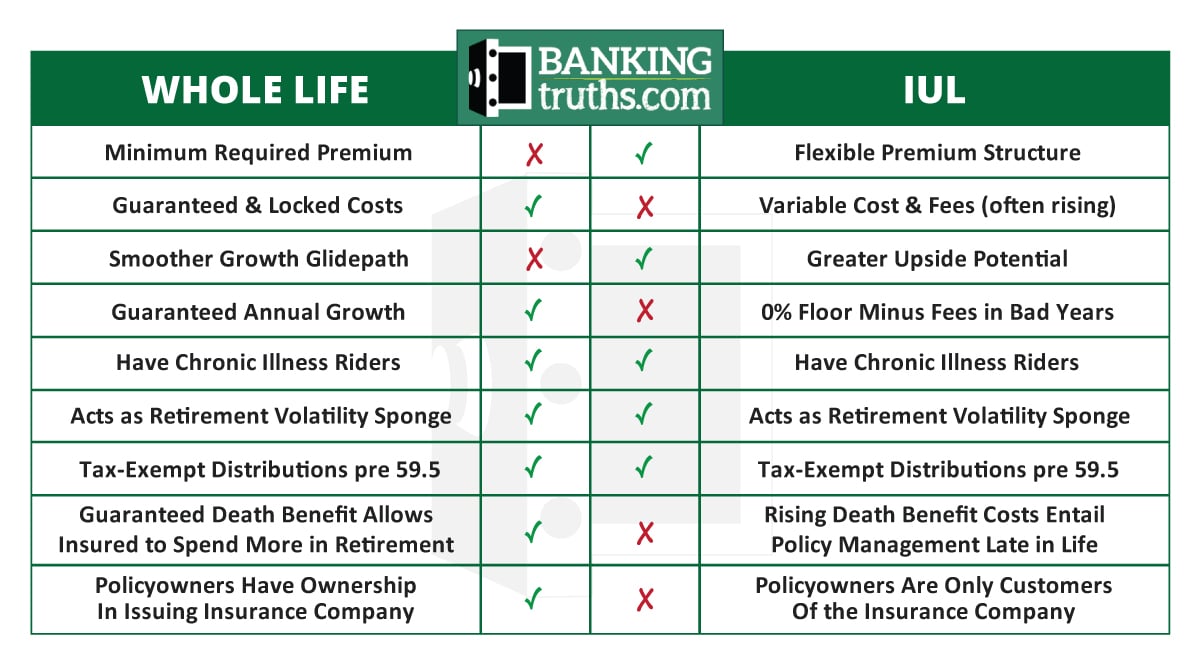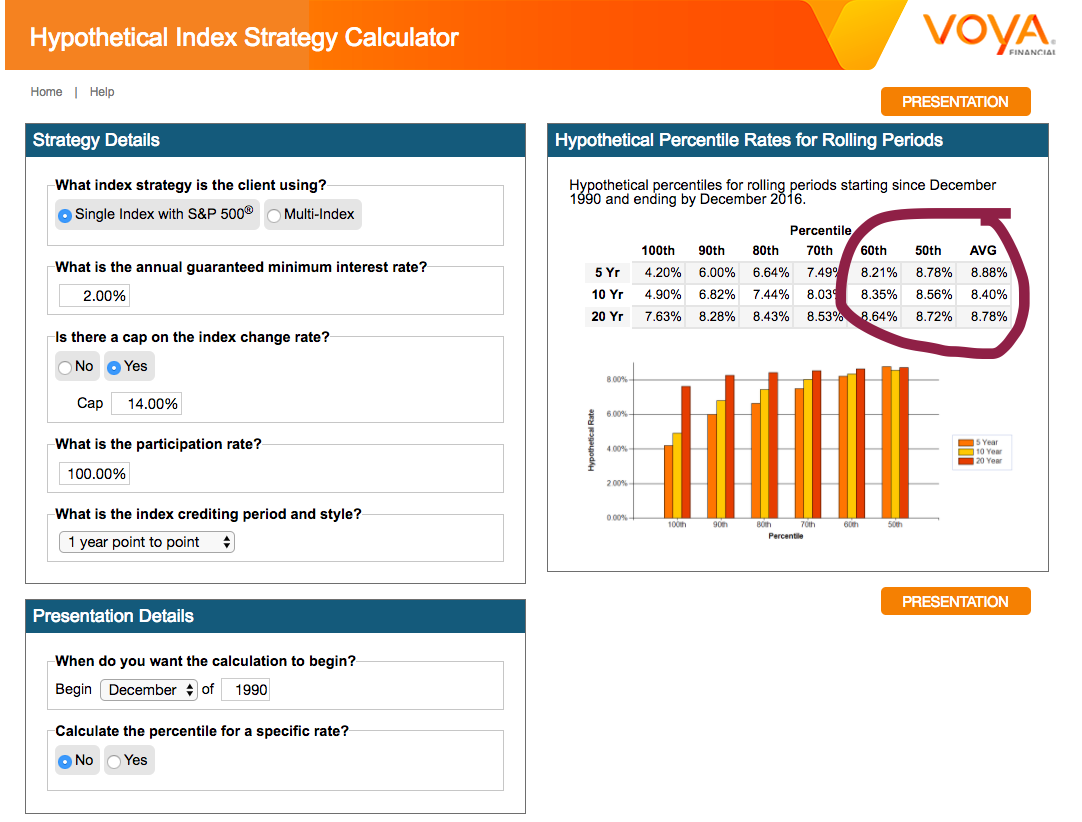All Categories
Featured
Table of Contents
1), often in an effort to beat their category standards. This is a straw male debate, and one IUL people love to make. Do they contrast the IUL to something like the Vanguard Total Securities Market Fund Admiral Show no lots, an expenditure ratio (EMERGENCY ROOM) of 5 basis points, a turnover ratio of 4.3%, and an exceptional tax-efficient document of distributions? No, they contrast it to some terrible proactively handled fund with an 8% lots, a 2% EMERGENCY ROOM, an 80% turn over ratio, and an awful record of short-term resources gain distributions.
Mutual funds frequently make yearly taxable distributions to fund proprietors, even when the value of their fund has actually gone down in value. Shared funds not only need earnings reporting (and the resulting annual taxes) when the common fund is going up in value, yet can additionally enforce earnings taxes in a year when the fund has actually dropped in worth.
That's not how shared funds work. You can tax-manage the fund, gathering losses and gains in order to decrease taxable distributions to the capitalists, yet that isn't in some way mosting likely to alter the reported return of the fund. Just Bernie Madoff kinds can do that. IULs avoid myriad tax catches. The ownership of common funds might require the mutual fund proprietor to pay projected tax obligations.

IULs are easy to position to ensure that, at the owner's fatality, the beneficiary is not subject to either earnings or estate taxes. The exact same tax obligation reduction strategies do not function virtually as well with mutual funds. There are various, commonly costly, tax obligation catches associated with the moment acquiring and selling of common fund shares, traps that do not put on indexed life Insurance.
Opportunities aren't very high that you're going to undergo the AMT as a result of your mutual fund distributions if you aren't without them. The remainder of this one is half-truths at finest. While it is true that there is no earnings tax due to your beneficiaries when they acquire the earnings of your IUL plan, it is also true that there is no income tax obligation due to your beneficiaries when they acquire a shared fund in a taxable account from you.
Best Indexed Universal Life
The government estate tax obligation exception restriction mores than $10 Million for a pair, and growing annually with inflation. It's a non-issue for the huge majority of medical professionals, much less the rest of America. There are better methods to stay clear of inheritance tax concerns than getting financial investments with reduced returns. Mutual funds might create income taxation of Social Safety advantages.

The development within the IUL is tax-deferred and might be taken as tax free income using lendings. The policy proprietor (vs. the shared fund manager) is in control of his/her reportable revenue, therefore enabling them to minimize or also get rid of the taxation of their Social Safety and security advantages. This is excellent.
Here's another minimal concern. It holds true if you acquire a mutual fund for state $10 per share just prior to the circulation date, and it distributes a $0.50 distribution, you are then mosting likely to owe taxes (possibly 7-10 cents per share) despite the truth that you have not yet had any kind of gains.
Yet ultimately, it's truly concerning the after-tax return, not exactly how much you pay in taxes. You are mosting likely to pay even more in taxes by utilizing a taxable account than if you acquire life insurance policy. Yet you're likewise probably mosting likely to have even more money after paying those taxes. The record-keeping needs for owning mutual funds are significantly more intricate.
With an IUL, one's documents are maintained by the insurer, duplicates of yearly statements are sent by mail to the proprietor, and distributions (if any kind of) are totaled and reported at year end. This one is also kind of silly. Of training course you should maintain your tax obligation documents in instance of an audit.
Iul Calculator
Barely a factor to buy life insurance coverage. Mutual funds are commonly component of a decedent's probated estate.
On top of that, they are subject to the delays and expenditures of probate. The profits of the IUL policy, on the other hand, is constantly a non-probate circulation that passes outside of probate directly to one's named recipients, and is as a result not subject to one's posthumous financial institutions, unwanted public disclosure, or comparable hold-ups and expenses.
We covered this one under # 7, however simply to summarize, if you have a taxable mutual fund account, you have to put it in a revocable trust fund (or even simpler, use the Transfer on Fatality classification) to avoid probate. Medicaid incompetency and life time revenue. An IUL can give their owners with a stream of earnings for their entire life time, no matter of exactly how long they live.

This is beneficial when organizing one's affairs, and transforming assets to income prior to a retirement home confinement. Common funds can not be converted in a similar way, and are usually considered countable Medicaid properties. This is another stupid one supporting that poor individuals (you understand, the ones who require Medicaid, a federal government program for the inadequate, to spend for their assisted living facility) must make use of IUL rather of mutual funds.
Ul Accounts
And life insurance policy looks awful when compared fairly versus a retirement account. Second, individuals that have cash to get IUL over and past their pension are mosting likely to have to be horrible at managing money in order to ever before receive Medicaid to pay for their assisted living home costs.
Chronic and terminal illness rider. All policies will allow a proprietor's easy access to money from their plan, often forgoing any type of abandonment fines when such people suffer a serious illness, require at-home care, or end up being confined to a retirement home. Shared funds do not offer a similar waiver when contingent deferred sales fees still apply to a mutual fund account whose owner needs to offer some shares to money the expenses of such a stay.
Guaranteed Universal Life Insurance Companies
Yet you obtain to pay even more for that benefit (biker) with an insurance plan. What a good deal! Indexed global life insurance policy provides death benefits to the beneficiaries of the IUL proprietors, and neither the proprietor neither the beneficiary can ever before shed money due to a down market. Common funds give no such assurances or survivor benefit of any kind of kind.
I definitely do not need one after I get to monetary freedom. Do I want one? On average, a buyer of life insurance coverage pays for the real expense of the life insurance policy advantage, plus the costs of the policy, plus the profits of the insurance firm.
Maximum Funded Tax Advantaged Life Insurance
I'm not completely certain why Mr. Morais threw in the whole "you can't shed money" once more here as it was covered fairly well in # 1. He just intended to repeat the very best selling factor for these things I intend. Again, you don't lose small dollars, however you can shed real dollars, as well as face significant opportunity cost because of low returns.

An indexed global life insurance coverage policy owner might trade their plan for an entirely different plan without causing income tax obligations. A common fund owner can not relocate funds from one common fund company to an additional without marketing his shares at the former (thus activating a taxable event), and redeeming brand-new shares at the latter, typically subject to sales charges at both.
While it is real that you can exchange one insurance coverage for another, the reason that individuals do this is that the initial one is such an awful plan that even after acquiring a new one and experiencing the early, adverse return years, you'll still appear ahead. If they were offered the best policy the very first time, they shouldn't have any kind of need to ever before trade it and undergo the very early, adverse return years again.
Latest Posts
Ul Mutual Company
Financial Foundation Index Universal Life
Universal Life Insurance Quote Calculator